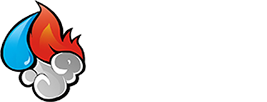Mold is an unwelcome guest that can silently take root in your home. This elusive invader not only threatens your health but may also damage the integrity of your home’s structure. Without a proper mold inspection Sonoma County, mold can compromise the well-being of your family and the safety of your house.
In this blog, we’ll explore the common areas where mold thrives, identify the three most prevalent types found in homes, and highlight the effects of mold on both people and property. Finally, we’ll share actionable steps to take if you suspect mold has made itself at home.
The Three Most Common Types of Molds in Homes
Molds are versatile structures created by specific fungus types, often producing spores that further propagate the fungus. Mold can range in color, texture, and environment but some have a proclivity for growing in homes. While there are thousands of mold species, the following three types are most commonly found in homes:
Aspergillus
This mold is often present in dust, HVAC systems, and even stored foods. While some strains are harmless, others can trigger allergic reactions and respiratory issues.
Cladosporium
Cladosporium grows on wood, fabrics, and damp surfaces. It can cause skin irritation, eye discomfort, and respiratory problems for sensitive individuals.
Penicillium
Known for its ability to produce antibiotics like penicillin, penicillium can still cause health issues in homes. It typically grows on water-damaged wallpaper, fabrics, and carpets.
Where Does Mold Commonly Grow in Homes and Why?
Remediating mold is often more intensive than simply clearing the mold that occurs. Mold can be a result of leaking pipes or roofs, flooding, water damage, high humidity, or poor ventilation. Because mold seeks out warm, damp environments, it is most likely to form in these key areas of your home:
Bathrooms
With frequent moisture and steam, bathrooms offer the perfect environment for mold to flourish. Shower corners, under sinks, and grout lines are especially vulnerable.
Basements
Dark, damp basements with poor ventilation create ideal conditions for mold growth. Water seepage and humidity levels can further exacerbate the problem, making this a concern after flood damage especially.
Kitchens
Leaky pipes, spills, and steam from cooking often lead to high moisture levels in kitchens. Poor ventilation in this area also contributes to mold development.
Attics
Roof leaks or poor insulation trap moisture in attics, providing mold with a perfect place to settle and spread.
The Effects of Mold in Your Home on People and Animals
Mold’s health implications can vary widely and often are mistaken for common colds, allergens outside the home, or other illnesses. These mix-ups are often why mold lingers in homes for much longer than it should. Be aware of the following health impacts on you and your family to help determine if mold is affecting your health.
Health Impacts on People
Mold exposure can cause respiratory problems like asthma and allergies, leading to coughing, sneezing, and nasal congestion. It can also cause eye irritation, skin rashes, and serious complications for those with weakened immune systems. Be aware of any new or developing symptoms you or your family may have and hire a professional mold inspector to assess your home if you have concerns.
Health Impacts on Pets
Pets may also suffer from mold exposure, experiencing symptoms like coughing, sneezing, and lethargy, similar to humans. Our furry friends may also have closer contact with certain areas that are more exposed to mold growth like under cabinets or stairways, keeping an eye on any unusual symptoms they exhibit can help you determine if a mold inspection is needed.
The Effects of Mold on the Structure of Your Home
Mold doesn’t just threaten health—it can also undermine your home’s structural integrity, potentially leading to structural damage or failure:
Damage to Building Materials
Mold can warp wood, disintegrate drywall, and eat through fabrics, leaving surfaces weakened and unsightly. These damages can be costly to repair and require a thorough expulsion of the mold to prevent continued damage.
Compromised Structural Integrity
When mold infiltrates framing, insulation, or support beams, it can severely compromise your home’s stability, increasing the risk of costly structural repairs or, in extreme cases, collapse! If you suspect mold in your home, it is always best to get a professional mold inspection to rule out damage to your home’s structure.
What to Do If You Suspect You Have Mold Growing in Your Home
Do you suspect mold growth in your home? Follow these steps:
Identification
Conduct a visual inspection, paying close attention to areas prone to moisture. Mold test kits can provide preliminary confirmation. Make sure you document all areas where mold is found or suspected so that you can show these problem areas to your professional mold remediation specialist.
Professional Assessment
Seek a professional mold inspection in Sonoma County for a comprehensive evaluation and to identify hidden mold colonies. These inspections can unveil areas where mold may be affecting your health or home and will save you money in the long run.
Remediation Plan
Work with a trusted mold remediation company, like Bravo Restoration in Sonoma County, to create a customized plan for mold removal and containment. Your restoration company will work with you to determine what actions need to be taken immediately to protect your health and home.
Prevention
Fix any leaks, maintain proper ventilation, and use dehumidifiers to reduce moisture levels in high-risk areas. Working with a professional mold inspection and restoration company will help you to determine what needs fixed as well as any potentially dangerous areas that can be safeguarded to prevent future mold growth.
Restoring Your Peace of Mind
Addressing mold promptly is crucial to protecting your family’s health and your home’s structure. If you suspect mold in your home, seek a professional assessment immediately.
At Bravo Restoration, we offer comprehensive mold assessment and remediation services to restore your home safely and efficiently. Contact us at Bravo Restoration or give us a call at (707)837-0675 today to schedule an inspection and protect your living space.

